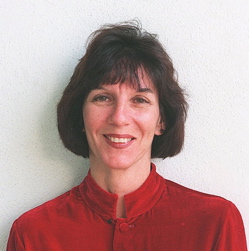The journalist as advocate: Q&A with Joan Vennochi
Pulitzer Prize–winning alumni gather on campus today

Joan Vennochi (COM’75), a political columnist for the Boston Globe, is among the 22 Pulitzer Prize–winning alumni who will return to campus for a two-day conference starting on Thursday, November 17. Vennochi joined the Globe staff in 1977 as a researcher for the investigative Spotlight Team and received a Pulitzer Prize for Local Investigative Specialized Reporting in 1980 for a series on the Massachusetts Bay Transportation Authority. She discussed one of the conference topics — The Rules of Engagement: Advocacy and Emotion in Journalism and the Press — with BU Today.
Isn’t an interest in advocacy often what draws people to a career in journalism?
It certainly did back in the day when I came to Boston University. I guess it was the post-Watergate era, when that whole notion of being a journalist meant being able to make a huge difference in what happened in government and in life.
Sometimes, when you’re at it a really long time, you wonder just how much you can change things; change, you realize, is really incremental, and turning a ship around or making people change their minds about something is not easy to do. But I think it’s worth the effort.
What role should emotion play in a columnist’s work?
A columnist basically does advocacy journalism. I’m writing my opinion; I’m obviously trying, to some degree, to influence the way other people think, and as time has gone on I’ve developed strong feelings about certain topics.
The best columns bring together emotion and fact. Emotion by itself can be just empty rhetoric — it can be fun to read, it can get people angry, it can inspire people, but if it turns out that the basis and the premise of your argument is pure emotion and you’re short on facts, it turns on you in the end.
Was it difficult to make the transition from being an investigative reporter to being a columnist?
It was difficult for me, because I didn’t get into journalism thinking I was going to be a columnist. I really was trained in a very different way with the Spotlight Team — it’s advocacy, but it’s uncovering wrongdoing or bad things that are going on, really rooted in a lot of research and taking a real long time to gather all the information and the facts and make the case.
To sort of transition to all of a sudden quickly mixing facts, putting in opinion, using emotion — that was pretty hard for me. You realize you may think you know what to think about a topic, but to take a side, argue it through, and see it in print the next day, or on the Web now, with your name over it, living and dying by the opinion or the argument that you made can be pretty sobering, to say the least. Sometimes I pick up the paper and say, I’d like to have that one back.
You said that at the time you started, post-Watergate, it was really apparent that journalists could make a difference. Has that changed significantly?
I think it has. At the time, it seemed Watergate made journalists out to be heroes, and it seems to me that for a certain period of time, the public kind of accepted that definition: on their side, doing something for them, telling them something that they really needed to know. Now it seems that the public is really cynical and skeptical of what the motives are. You have to tell yourself, or convince yourself, that you’re doing the right thing for the right reasons.
Plus, there are so many more venues for information. The idea of actually picking up an op-ed page of a newspaper, sitting down with a cup of coffee, and spending however long it takes to read through a variety of opinions is kind of quaint. You just hope there are some people out there who still do it.